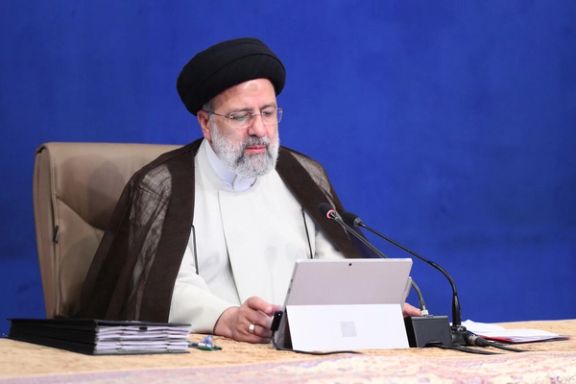Online Businesses Call On Iran’s Gov’t To Lift Internet Ban

Iranian online business owners have called on authorities to remove restrictions on Internet that it almost fully shut down since antigovernment protests started in mid-September.

Iranian online business owners have called on authorities to remove restrictions on Internet that it almost fully shut down since antigovernment protests started in mid-September.
In a letter to President Ebrahim Raisi on Sunday, over 1,200 Iranian business owners and people working in the field of information technology urged the lifting of restrictions and the release of imprisoned IT activists. The signatories are members of 13 associations and trade unions.
Criticizing the recent disruptions and extensive restrictions, these activists on Sunday reminded Ebrahim Raisi of his campaign promise to offer “access to free Internet.”
Since the current wave of protests has begun following the death in custody of 22-year-old Mahsa Amini, the government has blocked popular social media apps including WhatsApp and Instagram, and also cut access to the Internet for long hours every day to prevent circulation of information.
The signatories of the appeal also criticized limitations on social communication tools and cracking down on the activists in this field, adding that such measures have led to "public dissatisfaction" in addition to endangering the livelihood of millions of people.
The signatories of the letter also asked the government to restore “lost public trust” by “freeing the people who have been arrested simply because of their activities in this industry.”
Within the past weeks, in addition to the detention of many protesters and political activists, several well-known IT activists have been apprehended without any specific charges.
On Monday, Kaivan Jamebozorg, a board member of the Tehran IT Trade Union Organization, said there is currently no such thing as the Internet in the country but a “warped and unstable network” that cannot be relied on for business.
He noted that the digital economy is far beyond the contours of online businesses and has an important potential as a driving force for the development of the economy in general, as well as social and cultural spheres of the country, therefore the lack of free access to the Internet and international platforms will render the national network ineffective. "This network will be futile and useless without a stable internet and free access to it by people and businesses," he said, referring to the government’s plans to establish a domestic intranet network under its control.
Recently, Iran's Chamber of Commerce announced that every hour of internet interruption has an economic loss of about $1.5 million, which is equivalent to $36 million a day.
The curfew-style shut down of the internet has also begun to show its highly damaging impact on several industries including food, medicine, and steel production, damaging the production cycle and its destructive effect on the livelihoods of millions.
While Iranian hardliners say restrictions on Internet access will remain in place as long as street protests and strikes continue, Vahid Jalalzadeh, the chairman of the National Security Committee of the Iranian parliament, said in October that the Islamic Republic will provide Iranians with access to the Internet if European countries cut off “anti-Iran” networks in cyberspace.
Late in September, Iran’s foreign ministry had summoned the British ambassador in Tehran over what it called “a hostile atmosphere” created by London-based Persian media outlets. There are three London-based major Iranian satellite TV channels beaming programs into Iran; Iran International TV, Manoto TV and BBC Persian.
The US Senate Foreign Relations Committee is now considering a bill to support global Internet freedom, following government disruption of access in Iran amid protests.
Authorities disrupt the Internet to prevent news of unrest reaching the rest of the country and abroad, and to prevent protesters from galvanizing support in nearby regions.